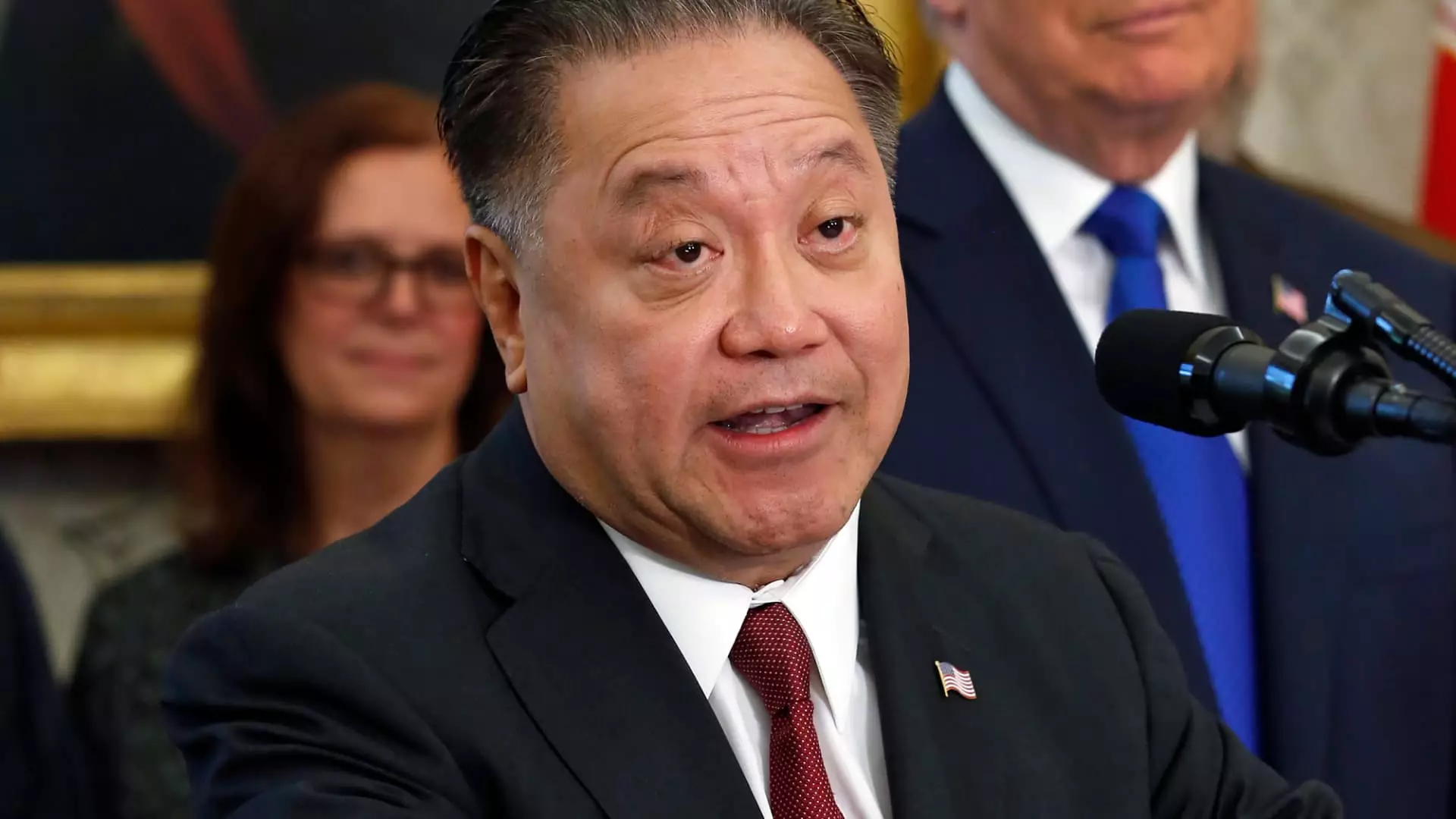Broadcom’s recent financial milestone is more than just a quarterly beat—it’s a seismic shift in the landscape of artificial intelligence infrastructure. The chipmaker’s announcement of securing a staggering $10 billion order from a major customer signifies the emergence of a new era where AI hardware becomes a pivotal financial and technological driver. Unlike conventional growth stories rooted in incremental improvements, this revelation points to a transformative trajectory, positioning Broadcom as a quintessential enabler of next-generation AI applications.
This $10 billion order, reportedly from a prominent AI startup—widely believed to be OpenAI—reflects the accelerating demand for specialized AI chips. Such massive commitments suggest that AI companies are no longer content with off-the-shelf solutions; they crave tailored hardware that can push the boundaries of performance. This marks a strategic shift towards custom-designed AI processing units (XPUs), emphasizing the industry’s move away from generalized chips toward highly optimized platforms capable of handling colossal workloads. Broadcom’s leap into this space underscores its vision to dominate AI infrastructure, challenging established players like Nvidia, which has historically set the pace.
Strategic Alliances and Market Domination
The industry’s landscape is rapidly evolving, with key players vying for supremacy in AI hardware. Nvidia has long been the dominant force, but Broadcom’s recent surge signals a formidable challenge. The company’s ability to secure a $10 billion commitment not only validates its technological prowess but also boosts its prospects for sustained growth. This is evidenced by the company’s stock soaring approximately 130% over the past year, transforming it into a trillion-dollar titan fractionally behind Apple and Microsoft.
Furthermore, Broadcom’s strategic partnerships with tech giants like Google, Meta, and ByteDance—operators of some of the largest digital ecosystems—underline a broader industry trend towards consolidating AI infrastructure. The company’s investments in custom chips and infrastructure software, notably the $61 billion acquisition of VMware, demonstrate an integrated approach: combining hardware innovation with robust software solutions. This synergy creates an ecosystem that is difficult for competitors to replicate, reinforcing Broadcom’s bid to be an indelible part of AI’s backbone.
Implications for the Industry and Future Outlook
This development raises profound questions about the future trajectory of AI hardware and the broader tech industry. The sheer scale of this order indicates that AI is no longer a niche or future-ready technology but a current and rapidly expanding market force. With shipments expected to begin in 2026 and growth estimates for AI revenue soaring to upwards of $35 billion next year alone, it’s clear that AI’s commercial impact will be massive.
Simultaneously, the story reveals a subtle shift in market dynamics. Instead of Nvidia monopolizing the AI hardware space, Broadcom’s strategic moves—securing big customers and investing heavily in software—signal a new competitive landscape. As demand accelerates, the focus will likely shift from merely developing raw processing power to creating an integrated AI hardware-software ecosystem that ensures performance, efficiency, and scalability.
Moreover, the announcement feeds a narrative of confidence and vision. Broadcom’s CEO, Hock Tan, openly specifies that the incoming demand will significantly alter the company’s outlook for 2026, suggesting that the chipmaker is positioning itself not just as a supplier but as a key architect of AI’s infrastructure future.
A Turning Point or a Passing Wave?
While the industry buzz around this $10 billion deal highlights Broadcom’s strategic renaissance, it also invites skepticism. Will the company sustain this growth and maintain its competitive edge, or is this a one-off windfall? Given the rapid pace of technological change and the fierce rivalry, sustaining these lofty ambitions will require persistent innovation and strategic agility.
However, one thing is clear: the AI revolution is front and center, reshaping priorities across the tech sphere. Broadcom’s bold move indicates that hardware manufacturers are cognizant of the enormous economic potential AI holds. They are positioning themselves now—racing to claim slices of a pie that will only grow larger as AI becomes ubiquitous in every facet of our lives.
The $10 billion order not only marks a milestone for Broadcom but also signals a broader paradigm shift in AI development. As both hardware and software become symbiotic, companies willing to invest heavily and forge strategic alliances are poised to lead the charge. Whether Broadcom will dominate or simply ride the wave remains to be seen, but one thing is undeniable: the AI future is being built today, and it is powered by revolutionary infrastructure investments.

